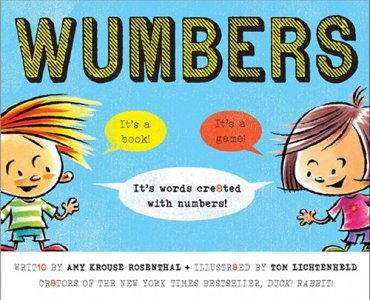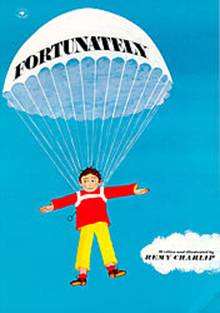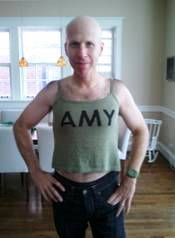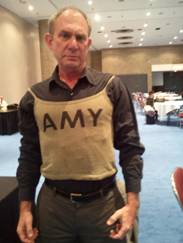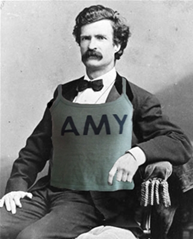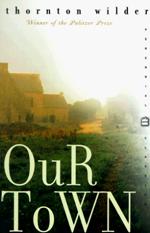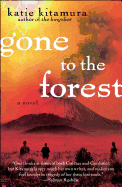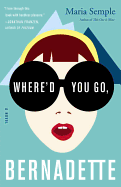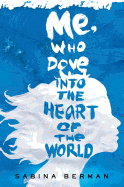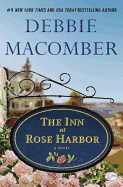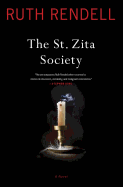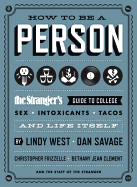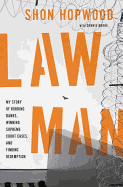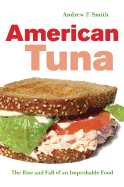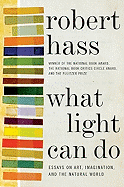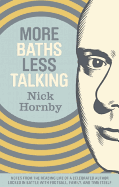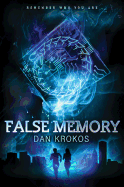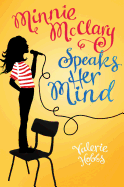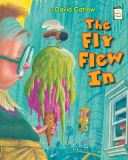The Second Time Around
Even if the excitement of the unknown is more thrilling than the comfort of the known, sometimes it is more wonderful the second time around. I'm talking about re-reading books, of course (what did you think?). For many, Jane Austen is the go-to re-read, for others it's To Kill a Mockingbird, or the Little House books, or even Proust. When I first wrote about re-reading books in March, I got a lot of responses. I was surprised--with so many books to read, who has time to re-read so extensively? Then I realized that I re-read when I need the calm of the familiar or down time from work--more often than I thought.
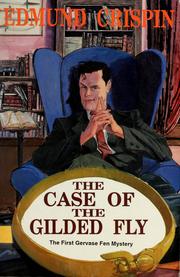 I just finished my treasure trove of Edmund Crispin mysteries. Between 1944 and 1953, he wrote nine novels featuring Gervase Fen, an eccentric and exasperating Oxford don. The wit and wordplay are exquisite. Other British mystery writers I go back to again and again are Patricia Wentworth, with her spinster sleuth Miss Silver, and Georgette Heyer--best known for her Regencies, but her mysteries are just as good. Also Dorothy Sayers, Josephine Tey, Mary Stewart--Stewart's descriptive prose and sense of place are superb, and her subtle romantic scenes sighingly evocative. I'm also a fan of Robert van Gulik's Judge Dee mysteries--sipping tea and losing myself in seventh-century China....
I just finished my treasure trove of Edmund Crispin mysteries. Between 1944 and 1953, he wrote nine novels featuring Gervase Fen, an eccentric and exasperating Oxford don. The wit and wordplay are exquisite. Other British mystery writers I go back to again and again are Patricia Wentworth, with her spinster sleuth Miss Silver, and Georgette Heyer--best known for her Regencies, but her mysteries are just as good. Also Dorothy Sayers, Josephine Tey, Mary Stewart--Stewart's descriptive prose and sense of place are superb, and her subtle romantic scenes sighingly evocative. I'm also a fan of Robert van Gulik's Judge Dee mysteries--sipping tea and losing myself in seventh-century China....
A study in the Journal of Consumer Research said re-reading is good for mental health. The researchers explained that the first time people read, they are focused on story; the second time, "the repeated experience reignites the emotions caused by the book... and allows people to savor those emotions at leisure. The 'second run' can offer profound emotional benefits." Here I thought it only offered profound pleasure. --Marilyn Dahl, book review editor, Shelf Awareness



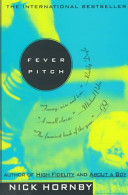 Many years ago, Canadian bookselling legend and Arsenal fan David Stimpson gave me a secondhand copy of Nick Hornby's Fever Pitch (Riverhead 1992) because I had made the uninformed and foolish claim that the only books about sport that were worth reading were those written on baseball. Hornby's book proved me wrong. It has many of the themes that make great novels--identity, obsession, coming of age and rites of passage. But the heart of the book is his reverence and passion for the sport. It's hard not to like Arsenal just a tiny bit after reading the book, harder not to be drawn in by soccer, and hardest not to become a fan of Nick Hornby.
Many years ago, Canadian bookselling legend and Arsenal fan David Stimpson gave me a secondhand copy of Nick Hornby's Fever Pitch (Riverhead 1992) because I had made the uninformed and foolish claim that the only books about sport that were worth reading were those written on baseball. Hornby's book proved me wrong. It has many of the themes that make great novels--identity, obsession, coming of age and rites of passage. But the heart of the book is his reverence and passion for the sport. It's hard not to like Arsenal just a tiny bit after reading the book, harder not to be drawn in by soccer, and hardest not to become a fan of Nick Hornby.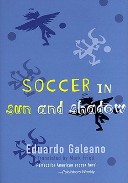 Soccer by way of Hornby is riveting and nostalgic; in the hands of Eduardo Galeano, it's lyrical and haunting. The short essays in Soccer in the Sun and Shadow (Verso, 1998) celebrate legendary teams, iconic players and miracle goals. But a darkness and melancholy also threads through the book with mentions of racism, fascism and political oppression. If the names Yashin or Zamora, Pedernera or Carrizo don't ring a bell, you'll be well guided through their stories--some exhilarating, some tragic--by Galeano's soft touch. The translation by Mark Fried is smooth and well done. The pleasant trim size and Galeano's silhouettes make the purchase of a print edition imperative (actually, I don't think there even is an e-book version).
Soccer by way of Hornby is riveting and nostalgic; in the hands of Eduardo Galeano, it's lyrical and haunting. The short essays in Soccer in the Sun and Shadow (Verso, 1998) celebrate legendary teams, iconic players and miracle goals. But a darkness and melancholy also threads through the book with mentions of racism, fascism and political oppression. If the names Yashin or Zamora, Pedernera or Carrizo don't ring a bell, you'll be well guided through their stories--some exhilarating, some tragic--by Galeano's soft touch. The translation by Mark Fried is smooth and well done. The pleasant trim size and Galeano's silhouettes make the purchase of a print edition imperative (actually, I don't think there even is an e-book version).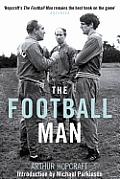 The Football Man (Aurum 2006, originally published in 1968) by the late Arthur Hopcraft is often cited as the best book written on the sport. A talented author and scriptwriter (Tinker, Tailor, Solder, Spy) Hopcraft covered football for the Guardian and the Observer. He was one of the first writers to position soccer in a cultural framework. The book is broken into sections: The Manager, The Player, The Referee, The Fan, etc. Hopcraft's nine-page portrait of a young George Best is a particularly noteworthy passage, as is the chapter on the death of Duncan Edwards and seven other Manchester United players in a plane crash in 1958.
The Football Man (Aurum 2006, originally published in 1968) by the late Arthur Hopcraft is often cited as the best book written on the sport. A talented author and scriptwriter (Tinker, Tailor, Solder, Spy) Hopcraft covered football for the Guardian and the Observer. He was one of the first writers to position soccer in a cultural framework. The book is broken into sections: The Manager, The Player, The Referee, The Fan, etc. Hopcraft's nine-page portrait of a young George Best is a particularly noteworthy passage, as is the chapter on the death of Duncan Edwards and seven other Manchester United players in a plane crash in 1958.